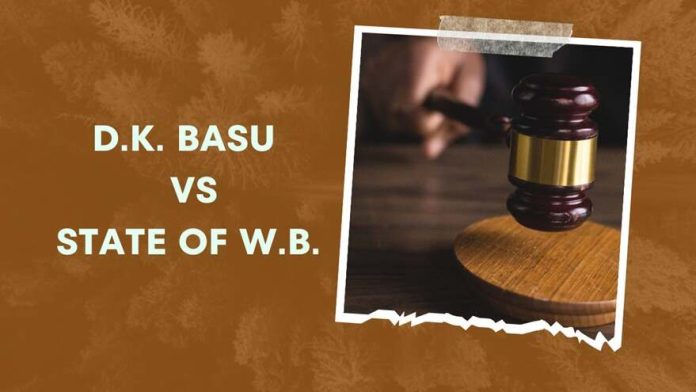The DK Basu vs State of West Bengal case is a landmark in Indian legal history, addressing the pervasive issue of custodial violence and laying down comprehensive guidelines to protect fundamental rights. To elaborate on this case and its impact, let’s delve into its background, core issues, arguments, court’s ruling, established guidelines, impact, legal significance, and ongoing challenges.
Background and Context
The case emerged during a period marked by increasing incidents of custodial violence and deaths in India, where individuals held in police custody faced brutality, torture, and violations of their basic human rights. Dr. DK Basu, a physician and human rights activist, brought this issue to the forefront, highlighting the urgent need for judicial intervention to address these systemic violations. The primary concern was the infringement of fundamental rights, particularly the right to life and personal liberty guaranteed under Article 21 of the Constitution of India.
Core Issues and Petitioner’s Arguments
Dr. Basu argued that custodial violence not only violated the dignity of individuals but also undermined the rule of law and eroded public trust in law enforcement agencies. His petition emphasized the humanitarian aspect, asserting that even individuals accused of crimes deserved humane treatment and protection from abuse while in custody. The core issue revolved around the need for preventive measures and guidelines to ensure that law enforcement agencies operated within legal and ethical boundaries, safeguarding the rights of the accused.
Respondent’s Arguments and Court’s Ruling
The respondents, representing the state of West Bengal and law enforcement agencies, contended that existing procedures and safeguards were sufficient. They argued that imposing stricter regulations could impede law enforcement activities. However, the Supreme Court, recognizing the gravity of custodial violence and its implications on individual rights and societal trust in the justice system, ruled in favor of the petitioner. The Court’s judgment reflected a deep commitment to upholding constitutional values and protecting fundamental rights.
Establishment of Guidelines
In its landmark judgment, the Supreme Court laid down comprehensive guidelines to govern police behavior during arrests, detentions, and interrogations. These guidelines aimed to prevent abuse, torture, and violations of human rights in custody. Key aspects of the guidelines included:
- Identification and Documentation: Police officers were mandated to properly identify themselves and maintain detailed records of arrests, including time, place, and reasons.
- Informing Relatives and Legal Aid: The guidelines emphasized the prompt notification of the arrested person’s relatives or friends about the arrest and facilitating access to legal assistance.
- Medical Examination: Every arrested person was to undergo a medical examination by a qualified doctor, and the findings were to be documented.
- Preventing Abuse and Torture: The guidelines explicitly prohibited physical and mental abuse, torture, and coercion during interrogation or custody, emphasizing respect for human dignity.
Impact and Legal Significance
The implementation of these guidelines led to a noticeable reduction in custodial violence and deaths, signaling a positive shift in police behavior and accountability. The guidelines set a crucial legal precedent regarding the protection of fundamental rights, especially in law enforcement practices. They emphasized the judiciary’s role in upholding constitutional values and ensuring justice for all.
The legal significance of the DK Basu case extends beyond its immediate impact. The guidelines established by the Supreme Court were eventually integrated into the Criminal Procedure Code (CrPC) in 2008, enhancing their legal standing and applicability nationwide. This integration further solidified the principles of accountability, transparency, and human rights protection within the criminal justice system.
Continued Challenges and Ongoing Efforts
Despite the legal provisions and guidelines, challenges persist in ensuring uniform implementation across different states and law enforcement agencies. Continuous awareness programs and training initiatives are essential to educate law enforcement personnel about these guidelines and reinforce a culture of respect for human rights and dignity.
In conclusion, the DK Basu case stands as a testament to the judiciary’s commitment to upholding constitutional values and protecting individual rights. Its impact continues to resonate in legal circles, shaping policies, practices, and public discourse on human rights, law enforcement accountability, and the rule of law in India.
Also Read:
Rights of undertrial prisoners in India
How To Send A Legal Notice In India



